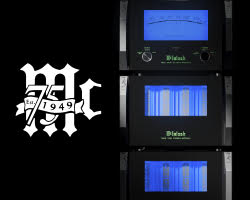Let’s start at the beginning – Max Richter is one of my favourite post-classical composers who you might say has literally been around the block. He currently records on the German classical label Deutsche Grammophon, but many of his earlier releases were via the imprint ‘130701’, an offshoot of the indie label FatCat Records, one-time home to Frightened Rabbit and current residence to The Twilight Sad and C Duncan, whose album we recently reviewed here on Hifi Pig.
It’s difficult to classify Richter’s work as being simply ‘classical’, because of the way that he blends instruments, sounds, noises and whatever he lays his hands on, into his music. I picked up on Max’s work around a decade ago, shortly after he’d released the sublime ‘The Blue Notebooks’, his second album. With its strings, synthesizers, field sounds, typewriter keys, muddied conversations, and female storyteller, it transfixed me. You’ve probably heard tracks from the album without even realising it. ‘Vladimir’s Blues’, for instance, has popped up in various commercials over the years.
‘SLEEP’, is an altogether different proposition from Richter’s previous work. It’s impossible to approach listening to it in the same way as any of his other work – or indeed anyone else’s for that matter. That’s because the full version of ‘Sleep’ is some 8 hours and 24 minutes in duration. And I quote – “It’s my personal lullaby for a frenetic world,” he says. “A manifesto for a slower pace of existence.” Furthermore, Richter genuinely intends the work to send the listener to sleep.
It’s worth noting that two different versions of ‘SLEEP’ will be available upon its release – the full 8 hour version can only be purchased via download (since it’s impractical to change a CD whilst sleeping), whereas an edited one-hour adaptation will be released on both CD and vinyl.
Given that I’ve been asked to write about ‘SLEEP’, I first approached it just as intended and climbed into bed with my headphones on, pressed ‘play’ and afterwards remembered precisely next-to-nothing as I fell silently and quickly to sleep. Since then, I’ve done the complete opposite and listened to it throughout the day on a number of occasions. We already know that Richter set himself not just a challenge but a task which would, by most people’s standards, be impossible to achieve. How does one even contemplate writing a piece of music with the intention is that it lasts for the full duration of a night’s sleep? In doing so, Richter had set himself a huge mountain to climb.
What I can say at this point is that Richter has delivered a piece of music which is both incredibly moving and hugely engaging. I normally find listening to music at night difficult because I’ve never understood the idea of ‘background music’ – music that blends into the very fabric of the walls, music so vapid that it’s just there, hovering, lingering like cigarette smoke. It should be said that this is definitely not ‘background music’. I guess that for me, the music is been successful in achieving its aim of sending me to sleep, but this is actually highly unusual as I find that I tend to get caught up in listening to the very music which is attempting to send me to sleep, and, as a result, it keeps me awake.
The beauty of much of this music is that it’s perfectly possible to take elements in isolation. “Who’s [sic] Name Is Written On Water”, for instance, commences with a ghostly angelic voice, layered in reverb and digital effects, creating an almost drone-like sound. The result is mesmerising. The vocal melody line on this track transcends across several other parts of the album. There’s also a general ‘theme’ in place across the recording, described best by the slow piano in ‘Dream 2 (entropy)’. It crops up in various guises across the album and works well as the fabric which knits together the various pieces. ‘Patterns (cypher)’ is the shortest track here, at just 2 mins 46 secs; It’s also possibly the track which I would most envisage playing to a post-classical fan before asking them to guess the artist. I imagine that many would correctly guess the answer.
As a Richter fan, there are no major surprises here, but that’s not really the point of this recording. Nothing feels rushed, nothing feels diluted; notes are extrapolated, developed and they slowly then morph into something else. Take ‘Chorale / glow’, for instance. This track, over the course of 25 minutes or so, takes the listener on a journey loosely around a single note. Its position, appearing roughly half-way into the album, feels neither right nor wrong. Its charms lie in being able to take a musical note which drifts, as if stateless, where even the smallest of changes are thought-provoking.
I personally love ‘Space 17 (chains)’. It’s a track which I can easily imagine waking to. Richter’s strings, familiar from earlier recordings, serve to break through the clouds and allow the sunshine in. This track alone, at 18 minutes, would be worthy of the whole of one half of most artists’ albums. Here, it’s simply one piece from 31 segments. It’s a piece which offers optimism and yet serves only to break your heart.
A special mention should be made of the incredible female voice throughout ‘Path 3 (7676)’. I found it literally impossible to concentrate on anything but this voice. There’s little in the way of instrumentation which serves to show how incredible the human voice is as an instrument in its own right.
With ‘SLEEP’, Richter has achieved the impossible. Not only has he delivered what he originally set out to achieve, but in doing so has produced a living legacy. ‘SLEEP’ is an incredible piece of work which manages to be captivating, intriguing and, at times, bewitching. Night time will never be the same as a result.
Paul Lockett



















































































































































































You must be logged in to leave a reply.